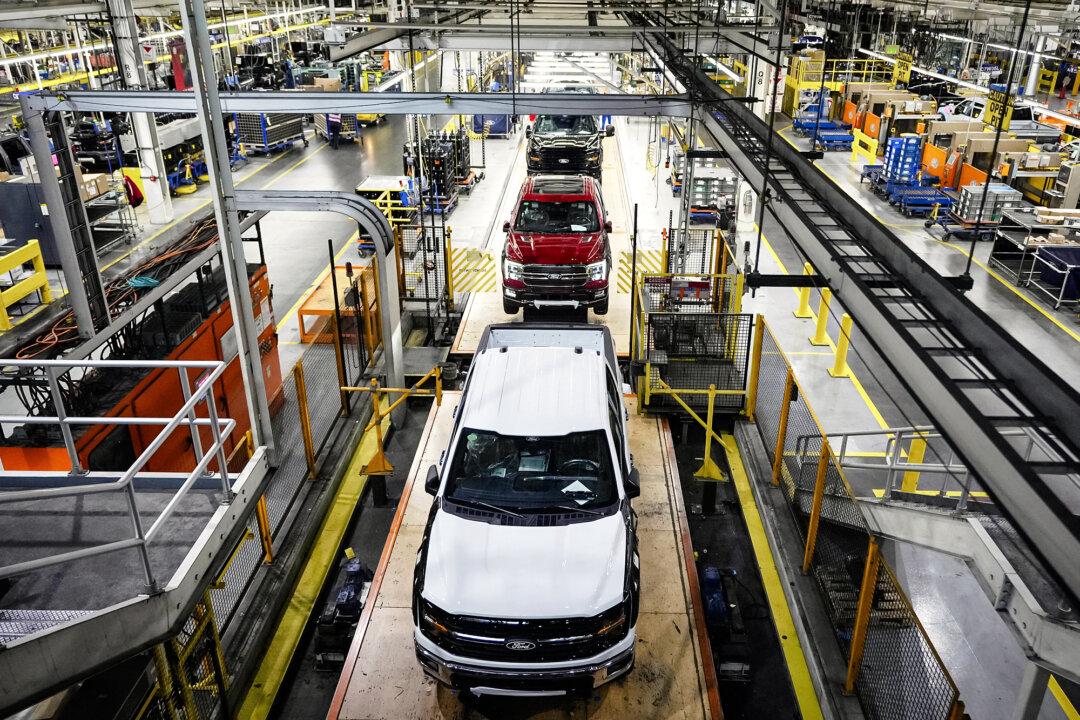U.S. automaker Ford Motor Co. estimated on May 5 that tariff-related policy developments will hit the company’s bottom line by $1.5 billion through 2025 but stated that it does not expect industrywide price hikes in the United States this year.
For the quarter that ended on March 31, Ford reported adjusted earnings of $1 billion, or 14 cents per share, down by 64.5 percent from adjusted earnings of $2.8 billion, or 49 cents per share, a year prior. First-quarter revenue fell by 4.9 percent to $40.7 billion from $42.8 billion a year ago.





